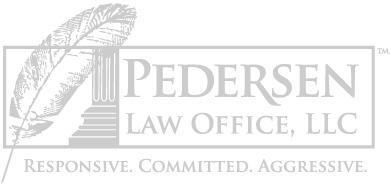Common Estate Planning Terms
Aug 25, 2023

Administration - The court-supervised distribution of an estate during probate for a Will. The process can be formal or informal in Wisconsin. It can also be used to describe the process of settling a Trust after the grantor of a Trust passes away.
Administrator - The person to oversee and manage an estate pursuant to a Will or a Trust. Also see Personal Representative and Trustee.
Attorney-in-Fact - The person named as agent under a Power of Attorney who is given authority to act on another’s behalf.
Beneficiary - A person named in a Will or Trust to receive property from a decedent.
Certificate of Trust - A legal document that verifies the Trust’s existence and certifies the Trustee’s authority to act. It does not include any specific information about the Trust’s assets, beneficiaries, or distributions.
Codicil - A legal document which is an addition or amendment to an existing Will so that a complete rewriting of the Will is not necessary.
Decedent - The person who has died and whose estate is subject to administration.
Declaration to Physicians - A legal document detailing a person’s wishes for end-of-life healthcare if they become incapacitated. Also referred to as Living Will or Advance Healthcare Directive.
Domiciliary Letters - Written proof that a person is authorized by the court to act as Personal Representative on behalf of the estate.
Durable Power of Attorney for Finances & Property - A legal document that designates an agent, also referred to as an attorney-in-fact, to act on one’s behalf regarding financial matters. The agent’s power continues even if the person becomes incapacitated but ends upon their death.
Durable Power of Attorney for Healthcare - A legal document that designates an agent, also referred to as an attorney-in-fact, to make healthcare decisions if the person creating the document becomes incapacitated.
Estate - The total assets and debts held by a person when they pass away.
Grantor - A person who creates a Trust. Also referred to as a Trustor or Settlor.
Heir - An individual entitled to receive a decedent’s assets under state law if there is not a valid Will or Trust. “Heir” and “beneficiary” are not synonymous, although they may refer to the same individual in a particular case.
Intestate - A person who dies without a valid Will so that the decedent’s assets are distributed according to the state laws that are referred to as “intestacy laws.”
Irrevocable trust - A type of Trust that generally cannot be changed or terminated once it’s created. This contrasts with a Revocable Trust. An Irrevocable Trust can be designed and used to protect assets from a nursing home and medical assistance if prepared and funded well in advance.
Issue – Refers to children, grandchildren, great-grandchildren, and lineal descendants of more remote degrees, including relation by reason of adoption (under § 854.20, Wis. Stats.) and non-marital children and their lineal descendants (to the extent provided by § 852.05, Wis. Stats.).
Personal Representative - A person named in a Will and appointed by the court to carry out the terms of the Will and to administer the decedent’s estate. May also be called an executor. In Wisconsin, evidence of this authorization is found in Domiciliary Letters granted by the court.
Pour Over Will – A Will used in conjunction with a Revocable Trust to pass title at death to property not transferred to the Trust during the grantor’s lifetime.
Probate - The court supervised process of proving the validity of a Will and distributing property under the terms of the Will or in accordance with a state’s intestacy law in the absence of a Will.
Probate Estate - Assets of the decedent that are subject to probate. Usually, the probate estate does not include assets under joint ownership, payable on death accounts, retirement plans such as 401Ks & IRAs, insurance policies with specified beneficiaries, and any assets in a Trust.
Revocable Trust – A type of Trust created during one’s lifetime that can be terminated, amended, or modified by the grantor. This contrasts with an Irrevocable Trust. A Revocable Trust is often used in Wisconsin to avoid probate and provide order and proper distribution of assets. Also referred to as a Living Trust.
Special Needs Trust – A Trust established for the benefit of a disabled individual, designed to help preserve assets without endangering the eligibility to receive government financial aid or public benefits. In Wisconsin, a Special Needs Trust can be set up as part of a Revocable Trust.
Testate - Having made a valid Will. When a decedent has died “testate,” distribution of assets follows the Will.
Testator – A male individual who creates and signs a Will.
Testatrix – A female individual who creates and signs a Will.
Trustee - A person or company named in a Trust to manage property and assets of the Trust. The trustee has duties to be loyal, be prudent, be impartial, and to inform the beneficiaries of the trust. The trustee can be the grantor and/or a beneficiary of a Trust in addition to the trustee role.
Will - A legal document, properly executed prior to death, which directs distribution of property after death and nominates who will care for and distribute property. It also nominates a Guardian to care for minor children.
FREE CONSULTATIONS
There is no doubt that the law can be complex and legal terminology can be confusing. An experienced attorney can help eliminate the stress of the unknown. At Pedersen Law Office, LLC we understand the importance of not only helping you through the process, but also educating you along the way. We offer free consultations to discuss your specific circumstances and goals for the future. Our law office serves the communities of Appleton, Neenah, Menasha, Oshkosh, Green Bay and their surrounding areas.


